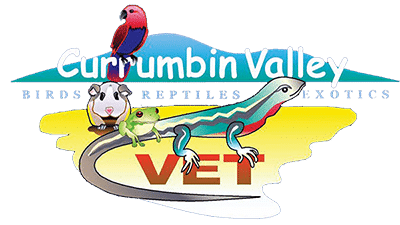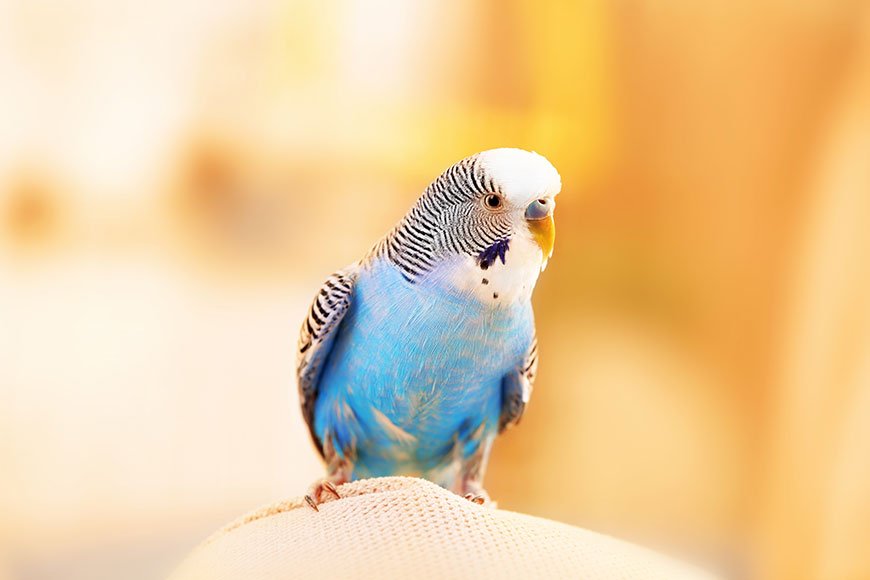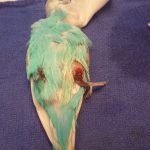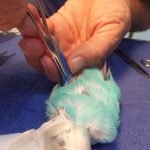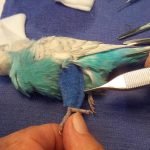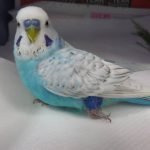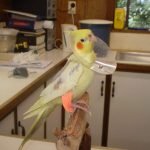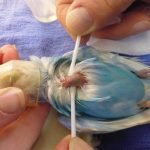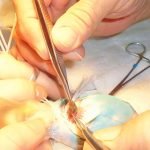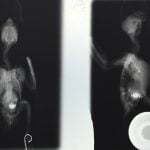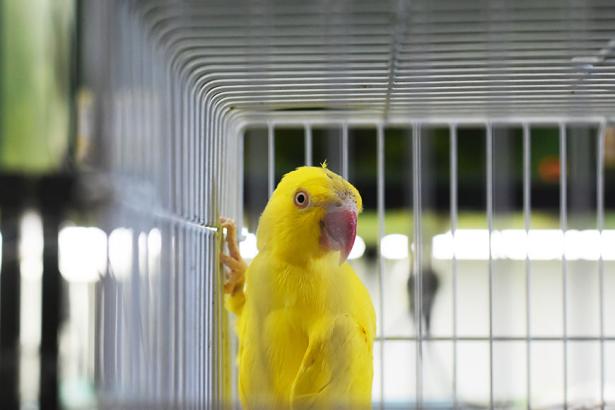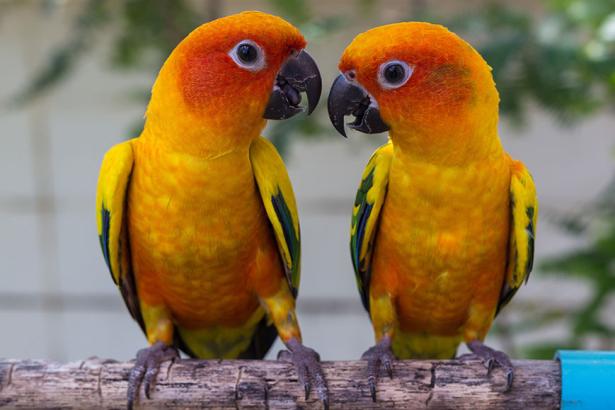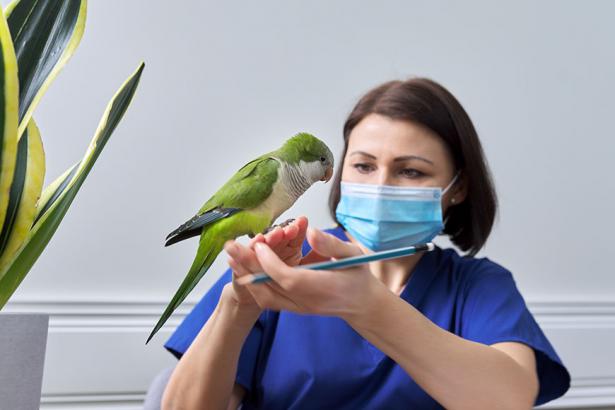The home can be a very dangerous place for a pet parrot. Parrots are inquisitive and curious and they need to chew. In one respect, they are very similar to young, human ‘toddlers’; everything new goes into their mouth. As a result, the household environment is fraught with dangers for the pet parrot.
Budgie who’s feet were amputated after landing in boiling water
These dangers generally pose no threat to our dogs and cats, however, because parrots have wings and a beak, they explore territory and chew on things that have the potential to cause life-threatening injury, poisonings and death.
Many well-meaning but misguided pet parrot owners don’t like to see their birds caged and therefore, give them unlimited, free access to their home. As an avian veterinarian, I am constantly seeing the end result of pet birds that come to grief as a result of unsupervised, free-range of the house. Just as we would not allow young children to be left alone in a house, we should now allow our birds unsupervised, access to the household environment. It can be a death trap!
HOUSEHOLD ACCIDENTS AND TRAUMATIC INJURIES
Free-flying parrots that are unsupervised and untrained often end up in my surgery as a result of traumatic, household accidents. Commonly occurring accidents include the following:-
- Collision with ceiling fans
- Drowning in toilets, sinks, bath-tubs
- Scalding from landing in sinks full of hot water
- Burning legs and feet from landing on hot plates, in pans of hot fat, saucepans of mashed potatoes etc.
- Flying into window panes and mirrors
- Being stood on, sat on
- Rolled on by wheeled computer chairs
- Falling behind the fridge
- Flying out of open doors and windows
- Attacked by pet dogs and cats
COMMON HOUSEHOLD SUBSTANCES THAT ARE TOXIC TO YOUR PARROT
It is not just traumatic injuries and accidents within the home that can prove fatal to your pet bird. There are also many ordinary household substances and products that can be toxic if chewed on, ingested or inhaled by your parrot. Things such as:-
- Match heads
- Incense
- Snail bait
- Soap
- Electrical leads
- Plug-in air fresheners
- Medications meant for humans or other pets
- Many household cleaning products
- Fumes from Teflon coated cooking pots and pans
- Candles
- Nicotine
- Motor Oil
- Insecticides
- Rat Poison
“FUR BALL” IMPACTION CAUSED BY CHEWING FABRIC AND FIBRE
One of the main dangers of parrots free-ranging in the house is their instinctive chewing behaviour. Parrots need to chew to keep the beak in shape and trimmed. They are also ‘hard-wired’ to forage for food. Parrots that chew on carpet fibres, curtains or upholstery fabrics are in danger of ingesting these fibres and threads and causing a foreign body impaction in their gastro-intestinal system. I have treated many birds with impactions of the crop and stomach. I have also performed post-mortem examinations on birds that have been so severely impacted and in such weakened condition when presented that they died.
HEAVY METAL POISONING
One of the most common causes of household poisoning is lead toxicity. Parrots are attracted to shiny items. Most parrot owners will be familiar with their pets fascination for jewellery. Gold and silver do not poison birds. However, there are many other sources of metal within the house that are toxic to parrots. Copper, lead, zinc, aluminium, chrome, brass all cause varying degrees of toxic reactions. Some common causes of heavy metal poisoning within the household include:-
- Lead-light ornaments
- Lead weights at the bottom of curtains or vertical blinds
- Fishing sinkers
- Foil from wine bottles
- Lead paint
- Lead solder
- Metals toys
- Christmas tinsel and glitter
- Slivers of aluminium from the tracks of sliding glass windows and doors
- Bases of light bulbs
- Batteries
- Electrical leads
- Copper wire
- Galvanized wire
EXOTIC HOUSE PLANTS
Many commonly kept house plants are toxic to parrots. Some plants merely make your bird sick, but others can kill them. It is best to keep your parrot and your indoor plants separately. Some plants that cause problems for your birds include:
- Philodendrons
- Ivy
- Oleander
- Onion
- Avocado (fruit and seed)
- Poinsettia
- Weeping fig
- Mother-in-laws tongues
FAQs
Some common problems that exotic animal vets treat are parasites, malnutrition, and injuries. They also provide routine care, such as vaccinations and check-ups. Vets at the local bird and exotic animal clinic work closely with owners to ensure that their pets are healthy and happy.
If you suspect your pet parrot has ingested something toxic, it is important to seek veterinary care immediately – do a search online for a “bird vet near me open now”. In the meantime, you can try to remove any remaining pieces of the toxic substance and offer your bird water. It is important not to induce vomiting, as this can cause further damage to the bird’s digestive system.
